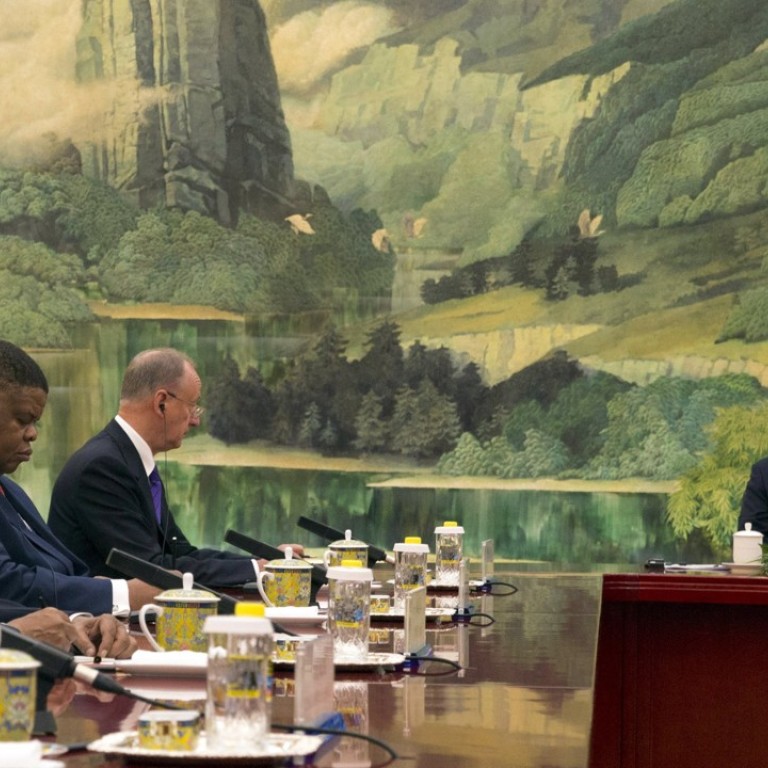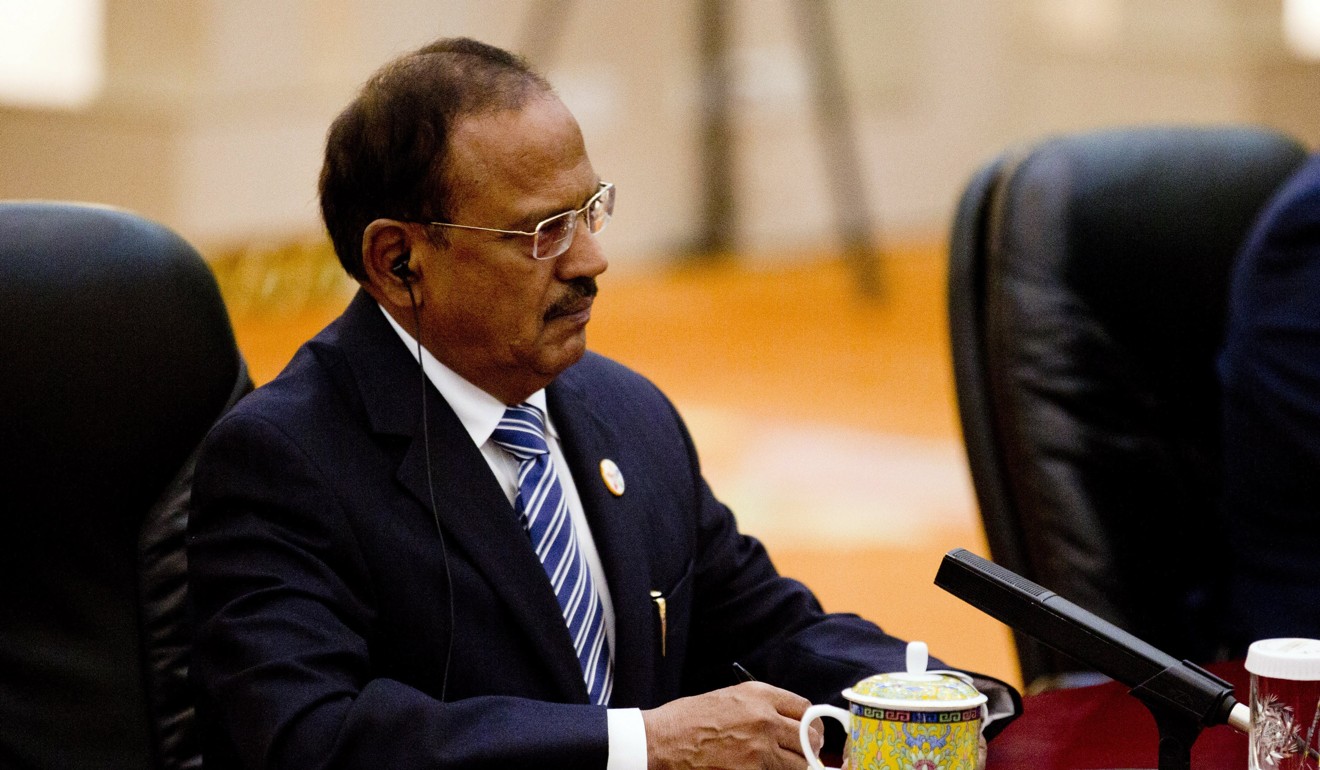
Glimmer of hope over border row as envoys from China and India meet
Prospects of a resolution to the stand-off rise with talks in Beijing but no quick end in sight
Hopes of an end to a Himalayan border stand-off between China and India have risen with a meeting of top diplomats from both nuclear-armed Asian giants, analysts said on Friday.
But neither Beijing nor New Delhi was likely to back down immediately and the chances of a quick solution remained dim amid rising nationalism and deep-rooted hostility, they said.
State Councillor Yang Jiechi met Indian National Security Adviser Ajit Doval in Beijing on Thursday on the sidelines of a meeting of top security advisers for the BRICS nations.
Yang and Doval are special representatives of the India-China border mechanism and their meeting was the first substantial talks between the two sides since a row broke out more than a month ago in a disputed area near China, India and Bhutan.
Doval also met President Xi Jinping as part of a BRICS gathering on Friday.
The foreign ministry confirmed on Friday that Yang discussed bilateral relations and “major problems” in his meeting with Doval. But neither Beijing nor New Delhi commented on the discussions. Instead, the ministry said Yang expounded China’s “principled stance on important matters over bilateral relations and major issues”. News agency Press Trust of India said the meeting between Yang and Doval lasted less than 30 minutes.

Regional observers said the meeting could be “a positive signal” to ease tensions as the two sides were seeking diplomatic measures to de-escalate the unprecedented crisis.
Rajeev Ranjan Chaturvedy, a research associate at the National University of Singapore, said the face-to-face talks were a chance to explain their respective positions directly and it was much needed and a welcome sign. “I believe the meeting between the two national security advisers has opened the channel of dialogue between the two countries at a higher level which was going on quietly so far,” he said.
Wang Dehua, a specialist on South Asian affairs at the Shanghai Municipal Centre for International Studies, said the risk of war remained, especially when there was no immediate sign that India would withdraw its troops, a precondition Beijing has set for further dialogue.
In New Delhi, Ministry of External Affairs spokesman Gopal Baglay said diplomatic channels remained “functional” to resolve the stand-off, The Indian Express reported.

